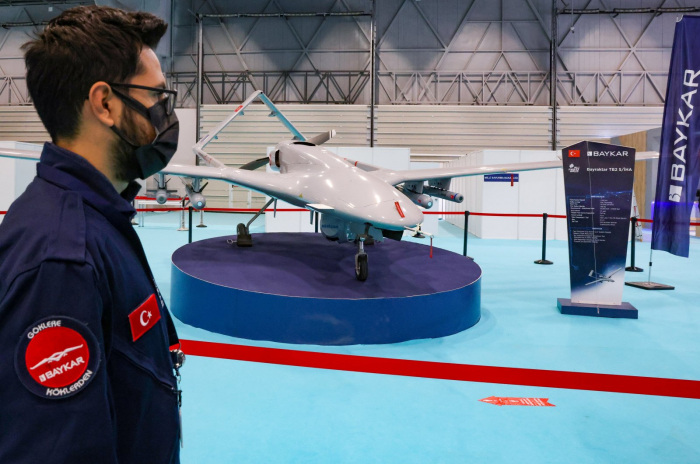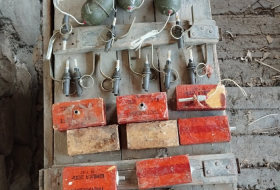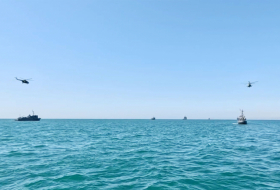Haluk Bayraktar, one of two engineer brothers running Baykar, known for its armed drones that were decisive in conflicts in Azerbaijan and Libya, said the new aircraft would be tested in the next two years and would be able to take off from a Turkish navy ship currently under production.
Turkey’s deployment of the company’s Bayraktar TB2 drone has been a major factor in conflicts in Syria, Iraq, Libya and Azerbaijan, pushing Baykar into the spotlight and transforming it into a major manufacturer and exporter.
The firm has now signed export deals with 13 countries including a joint production deal with Ukraine, as its products help reshape the way modern wars are fought, Bayraktar said.
The scale of Turkey’s drone program puts it in the world’s top four producers alongside the United States, Israel and China, analysts say.
“Smart, unmanned aircraft systems are the two leading technologies that changed the landscape for power projection,” he told Reuters on the sidelines of SAHA EXPO, a major defense show, in Istanbul.
“As everyone is talking about how drone technology is changing battle doctrines ... one of our next objectives is the TB3 drone, capable of taking off from and landing on TCG Anadolu,” Bayraktar said, referring to a planned Turkish light aircraft carrier that will be the largest naval vessel in the Turkish Armed Forces (TSK) inventory.
The multi-purpose flagship-to-be amphibious assault ship is expected to enter service in 2022. Set to become the country's first native and national aircraft carrier, TCG Anadolu will improve the operational capability of the naval forces.
Although the ship will be able to carry combat helicopters on its landing deck, Turkey does not operate a plane that can take off from the vessel. The TB3, with a folding-wing design, could deploy from the short naval runways.
With some sections under production, it is expected to see the first test flight next year, Bayraktar said.
It will be followed by an unmanned combat aircraft, called MUIS, with first prototype flight expected in 2023, he said. Currently in the design phase, MUIS will be jet-powered, with a payload of up to 1.5 tons.
The autonomously maneuvering craft will be capable of operating in tandem with piloted aircraft, and may carry air-to-air missiles, the company said.
Baykar, founded in the 1980s by Bayraktar’s father, Özdemir Bayraktar, who passed away last month at the age of 72, began to focus on unmanned aircraft production in 2005 as Turkey sought to strengthen its local defense industry.
Now it is spearheading Turkey’s global defense export push. President Recep Tayyip Erdoğan says international demand for TB2 and the newer Akıncı drone is huge.
“Everywhere, even in my Africa trip, they want drones, armed drones and Akıncı,” Erdoğan told Baykar workers last month after returning from a trip to Angola, Togo and Nigeria. “The whole world ... wants to see and to know what you are doing.”
The first Akıncı drone, which has a longer flight time and can carry a larger payload than the TB2, was delivered to the Turkish security forces in August.
Bayraktar said Turkey had made a “huge leap” in its effort to create its own defense industry over the last 20 years, expanding from 17 companies to nearly 17,000.
“The drone technology is just one success story born from the national and indigenous development drive,” he said. “We started to reap the benefits of work that began two decades ago only recently.”
















































